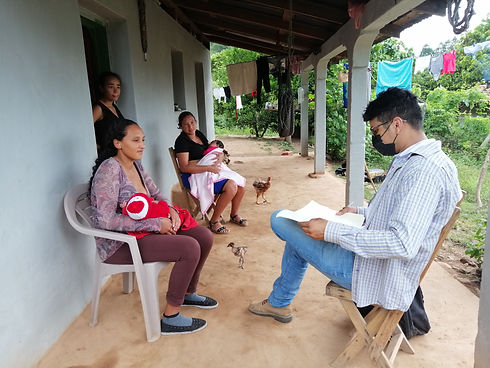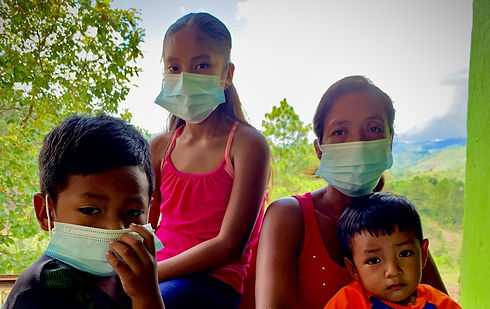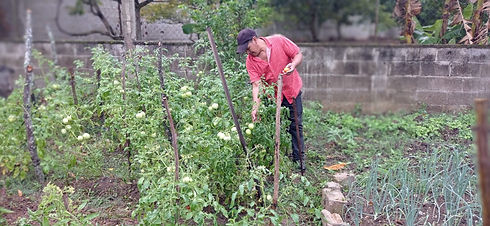Breaking the cycle of childhood malnutrition requires long-term, sustainable solutions. We're attacking the root causes here in Honduras to do just that.
In April of 2021, we launched our prenatal program to provide prenatal care and education to women living in remote areas of Yoro, Honduras. After a successful pilot with 40 households for nearly a year, we have rapidly expanded and continue to expand to reach more areas around Yoro that otherwise have little or no access to prenatal care.
THE NUMBERS
*Numbers current as of March 2024
HOW IT WORKS
Staff Home Visits
Our program staff make regular home visits to every participant in our program.
Their visits vary, but usually involve one or more of the following:
-
Converse to build trust and get to know those we serve
-
Educate on the different aspects of our program
-
Collect data
-
Distribute medicine or goods
This typically means at least one touch point per month between NutriFund and each family, allowing the program to respond to needs and adapt as neeeded.

.
Prenatal Vitamins
We distribute prenatal vitamins to all women of reproductive age in the communities we serve.
Most of our program beneficiaries are smallholder, subsistence farmers. Their diets are simple and not varied. As a result, it leaves the women open to vitamin and mineral deficiencies that can lead to pregnancy complications. By providing vitamins to all women in the community, we aim to mitigate this possibility.

.
OBGYN, Ultrasounds, Births
Public healthcare is free in Honduras, but is often times severely underfunded and difficult to access.
Most women in our program had never received prenatal care from a medical professional before. Our program links them with public health options when they are available, or provides care through a local OBGYN we partner with in town. It also provides access to giving birth in a medical setting.
We cover all costs including checkups, medicines, and transportation.

.
Agricultural Assistance
Alongside providing vital healthcare, we also seek to stimulate long-term economic development. The same families in our program are given access to fertilizer for their crops in the form of a returnable grant, meaning they are asked but not obligated to pay it back after they harvest.
By providing access to fertilizer, their output can increase significantly and means more money to spend on other necessities. By asking them to pay it back, we hope to sustainably finance parts of our program.

.
Our Guiding Principles
Helping a child recover from malnutrition is not a long-term solution. Rather, we have to look at the root causes of malnutrition and identify ways to solve them. Often times, lack of education, resources, or a combination of the two is the culprit. The best solution? We don't know. Targeted programs to improve education or resources can produce great results. Unfortunately, work in prevention does not have a one size fits all answer to it. Different cultures or geographic regions may require very different programs.
Sustainability
Breaking the cycle of malnutrition requires taking a look at the long term implications of our work and asking some difficult questions. Are we having an impact beyond the children we're targeting? Are there benefits for the community and region as a whole? If we end a program, what do we leave behind?
In order to grow our footprint and make meaningful strides to reduce childhood malnutrition, our work has to see long-term and sustainable effects.
Human Centered Design
The communities and people we wish to serve are at the center of our programs. They have played and will continue to play an integral role in the entire planning and implementation processes of our interventions.
No one knows a community better than those who make it up. By combining their knowledge of local strengths and weaknesses with our resources and expertise, together we achieve more impactful results.
Data Driven
We are driven to combatting childhood malnutrition, but we are not committed to just one method. Because of the many contributing factors to malnutrition, we know that each community will require a unique blend of solutions.
Better access to clean water, to preventative medicine, to nutritional education, to transportation or maybe just subsidized food—we are committed to expanding what is working and changing what isn't.

